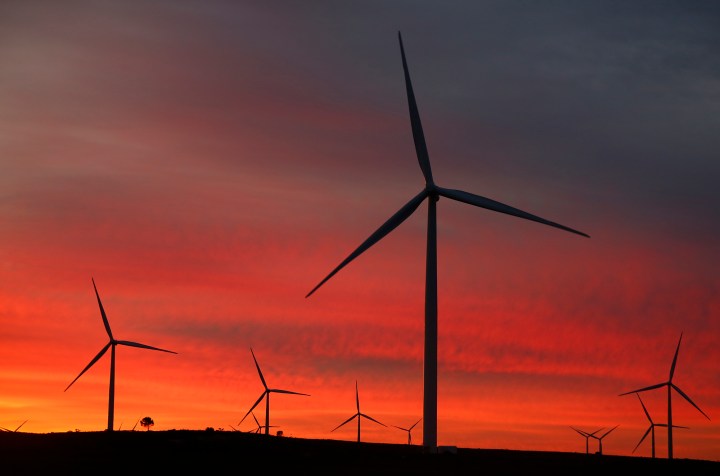OUR BURNING PLANET
Africa needs a green economic post-Covid-19 recovery, report finds

Africa needs to integrate green solutions into its post-Covid-19 economic recovery, a new report has found. The solutions will not only help the continent with an economic bounce-back, but will also help with adapting to the climate crisis.
As more African nations boost their vaccine drives and fully open up their economies, it is important that their post-Covid-19 economic strategy centralises climate crisis action in order to attract finance, address social challenges and achieve sustainable growth and development, a new report has found.
The report by Powershift Africa, “Driving a green and sustainable post-Covid-19 recovery in Africa”, is a collaborative effort of several teams across the continent, and draws from case studies in east, west and north Africa.
The pandemic has worsened the climate crisis, according to the report, as countries’ resources are now allocated to dealing with the pandemic, as opposed to climate adaptation efforts.
“Addressing climate change appears to have been deprioritised, whereas in fact, it represents a unique chance to create new jobs and drive new growth opportunities,” the report found.
Professor Chukwumerije Okereke, director of the Centre for Climate and Development at Alex Ekwueme Federal University Ndufu-Alike Nigeria, said in a statement that although green recovery concepts were gaining global popularity, “until now there has been limited national and international discussion about what these concepts mean for Africa. The concrete recommendations in this report are hugely important to steer the continent on the path of a green resilient recovery.”
The report looks at innovative and cost-effective green solutions to building a sustainable economy in Africa.
These solutions include smart public spending and investments in energy efficiency, climate-smart agriculture, green transportation, and boosting the digital economy as it limits vehicle movement and reduces emissions. Other recommendations are green industrial policy, tackling inequality, and environmental tax, as seen with South Africa’s carbon tax.
Mohamed Adow, the director of Powershift Africa, said in a press briefing that the pandemic is a reset moment and a chance to move away from wasting billions on doomed fossil fuel infrastructure and invest in clean energy.
“Our continent is blessed with wind, sun, and geothermal [energy]. Making this the backdrop of our recovery is the fastest most sustainable way to ensure that Africa prospers. This is the moment for Africa to lead the world,” Adow said.
Adaptation setbacks have often been blamed on a lack of funding for developing nations to transition to greener and more sustainable solutions. Developed nations alongside multilateral financial institutions pledged $100-billion each year by 2020 to address the climate crisis needs of developing countries; $78.9-billion was raised in 2018 from developed countries, while multilateral development banks funding in 2020 was $38-billion.
Fathallah Sijilmassi, the CEO of Positive Agenda Advisory, said the pandemic has stretched regional and global health, and financial and socioeconomic resilience to their limits.
“For this reason, immediate climate action and finance are crucial – especially in the run-up to COP26. There is a golden opportunity to make this a turning point for Africa’s accelerated growth and development,” Sijilmassi said in a statement.
In August, Minister Barbara Creecy of the Department of Forestry, Fisheries and the Environment, said developed nations need to increase their pledges from $100-billion per year to $750-billion a year by 2030 in order for developing nations to meet their adaptive strategies.
“There is a perception in some quarters that such green recovery interventions come at a cost, but this is not the case – especially now after the pandemic when financial and social constraints are so much tighter,” Rym Ayadi, president of the Euro-Mediterranean Economists Association, said in a press conference.
South Africa’s National Climate Change Adaptation Strategy, which is reviewed every five years, includes building a climate-resilient approach to climate crisis risks and vulnerability which will see a climate services system that provides climate products, enables a flow of adaptation finances and promotes research applications.
Economies in Africa were growing at about 3% GDP before Covid-19, but are now projected to shrink by between 2% and 8% as a result of the pandemic. South Africa has recently seen some of its highest unemployment rates, highlighting the effects of the pandemic.
Despite economic challenges, some African countries are making an effort to integrate sustainable solutions in their recovery. Nigeria’s post-Covid-19 recovery plan, for example, seeks to install home solar systems and mini-grids in five million households not currently connected to the national grid. If successful, the project would provide 250,000 additional jobs to help cushion the unprecedented rate of unemployment resulting from the Covid-19 lockdown, the report found.
And in Ghana the government is undertaking a National Adaptation Planning process as part of its post-Covid-19 recovery plan with a view to mitigating the negative impacts of climate change by developing projected rainfall and temperature change scenarios for the next 60 years.
The African Development Bank indicates that the continent’s economy will contract by between $173.1-billion and $236.7-billion in 2020/2021, with 30 million jobs lost and 28 million to 29 million people possibly being pushed into extreme poverty.
It seems that a green recovery, which increases job opportunities, while building adaptive strategies, is as crucial as ever, on a continent highly vulnerable to the effects of the climate crisis. DM/OBP


















 Become an Insider
Become an Insider